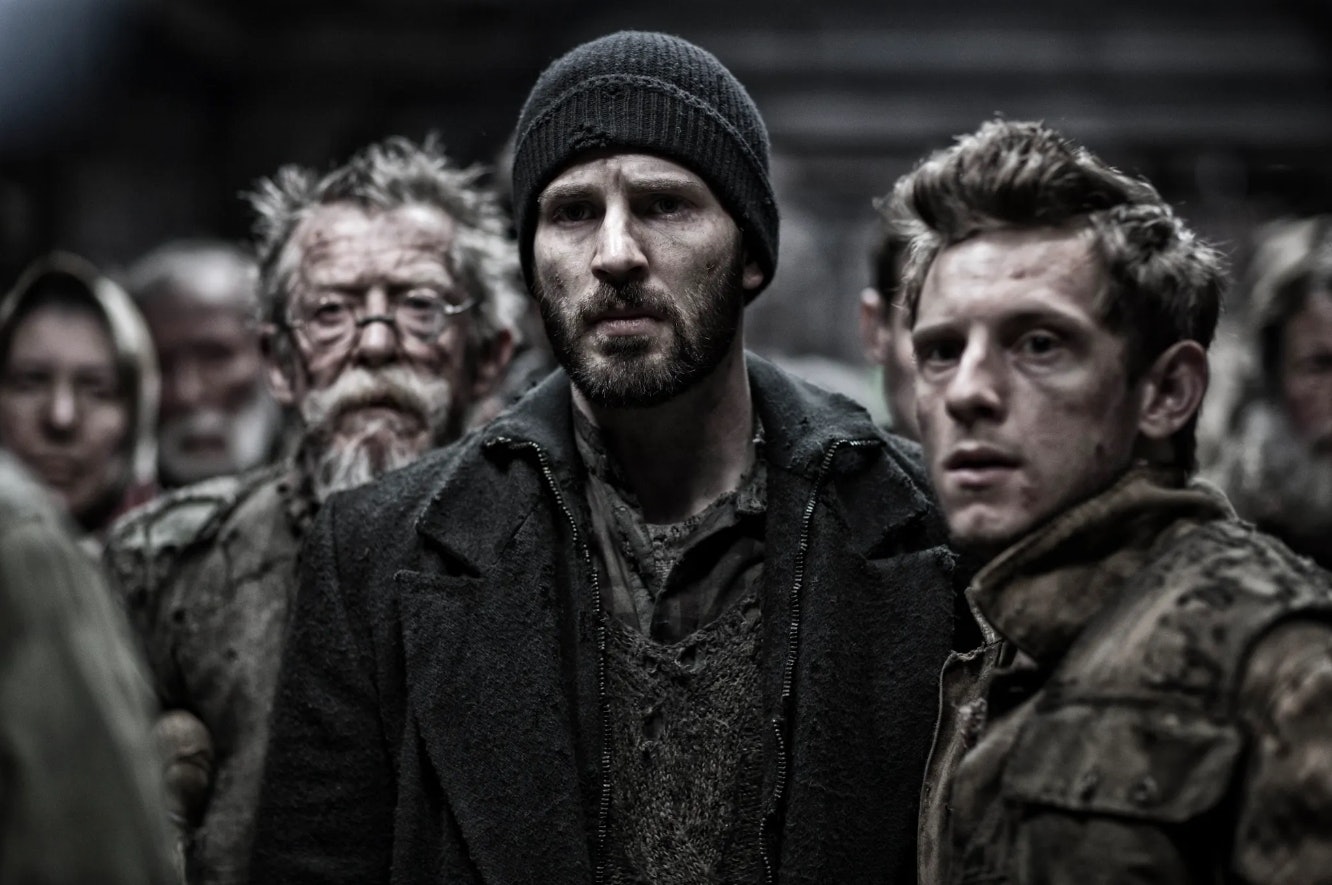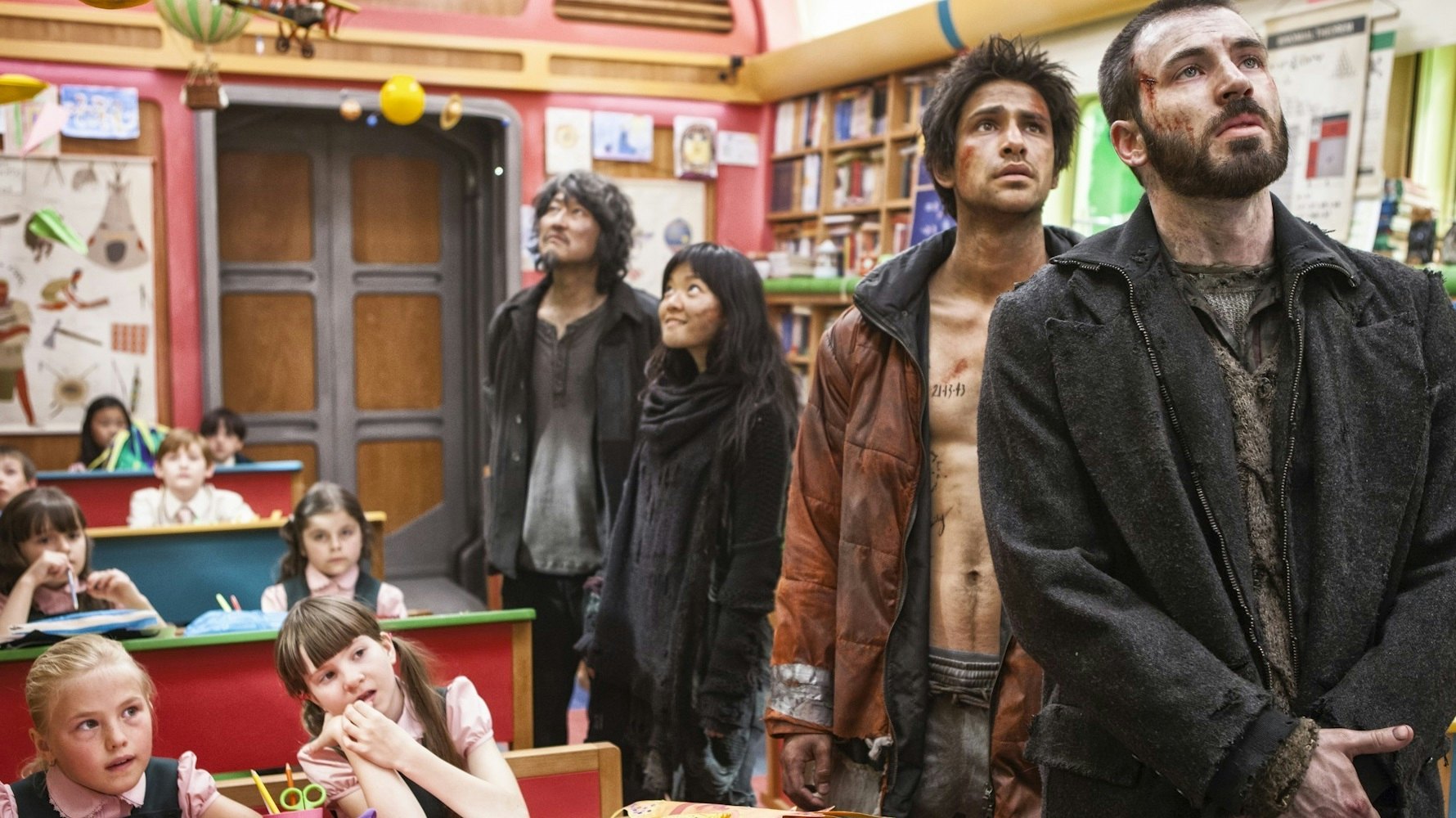
There’s a moment in the first half of Snowpiercer — Bong Joon-ho’s English-language debut named after the train constantly hurtling through a frozen apocalypse — that reveals the big twist without our characters realizing it. Led by Curtis (Chris Evans), the underclass segregated to the tail section of the train has rebelled against their authoritarian elites, and has just released two captive specialists, Namgoong Minsoo (Song Kang-ho) and his daughter Yona (Go Ah-sung), who will help stop the train’s security features.
Curtis realizes Yona is clairvoyant and can predict what dangers lie behind closed doors, which seems undeveloped for the rest of the narrative. But the point of Yona’s powers becomes clear once we learn the twist: many rebellions have occurred over the 17 years Snowpiercer has been on the rails, all provoked, encouraged, and designed by the train’s all-powerful engineer Wilfred (Ed Harris) to give tail-sectioners false hope and violently reduce their surplus population. When Yona says she can see what’s behind the next door, she’s not predicting the future; she’s looking into the past.
Ten years ago, Snowpiercer premiered in Korea, kicking off a long, arduous, and Harvey Weinstein-entangled journey to being seen worldwide. It may have been denied the explosive release it deserved, but after a decade of watching urgent activist movements be attacked and undermined from inception to collapse, there’s something meaningful in the way this revolution fails.
On-screen uprisings are having a bit of a moment; with the breakout success of Tamil-language RRR, the explosive indie thriller How to Blow Up a Pipeline, and Andor’s fist-pumping prison break, it’s clear audiences find something cathartic in seeing the status quo toppled. But Snowpiercer’s revolution is complicated by the fact it was all calculated, reminding us of the slim chances revolutions have to instigate meaningful change. As Curtis and his rebels push ahead, they discover plentiful resources that could keep the tail-sectioners healthy and learn the sickening truth that their poverty was enforced so Wilfred could control each stratum of society. And if you can create the exact conditions that encourage revolution, what’s stopping you from controlling its every move when it kicks off?
It’s hugely demoralizing to realize your anarchic passion can be predicted, designed, and exploited by your oppressors. When Wilfred decrees the exact percentage of tail-sectioners to be executed, the idea that true justice can be mathematically calculated makes you want to scream. As Snowpiercer makes brutally clear, those in power will decide that the already marginalized should suffer the worst effects of a worsening climate.

Is Snowpiercer anti-revolution? No, but it engages with the mechanics of why uprisings fail more than other films. In fact, it forces our characters to rethink what success would look like; rather than trying to replace the leader in a hierarchy, our heroes have to break free from imagining their lives as linear and cyclical. Minsoo tells his daughter that the ice and snow have started to melt, and the frozen wasteland outside is becoming habitable. In the end, she leaves the train to face an uncertain future. It’s a terrifying concept, but one that turns Snowpiercer’s entrenched power dynamics on their head: maybe we don’t need the train to survive.
After Curtis is offered Wilfred’s place as guardian of the sacred engine, he and Yona realize there’s no way to fairly redistribute the train’s power. No matter who’s in charge, it will always have a front and a back. Instead, it must be made obsolete, blown apart from the inside. Bong’s ending may not guarantee a beautiful future, nor does it make for a particularly sophisticated metaphor, but it’s a poignant note to end a rebellion on. There’s no way to change where the train is going while it’s still on the rails.







